Increments
Posted: August 18, 2016 Filed under: Uncategorized Leave a comment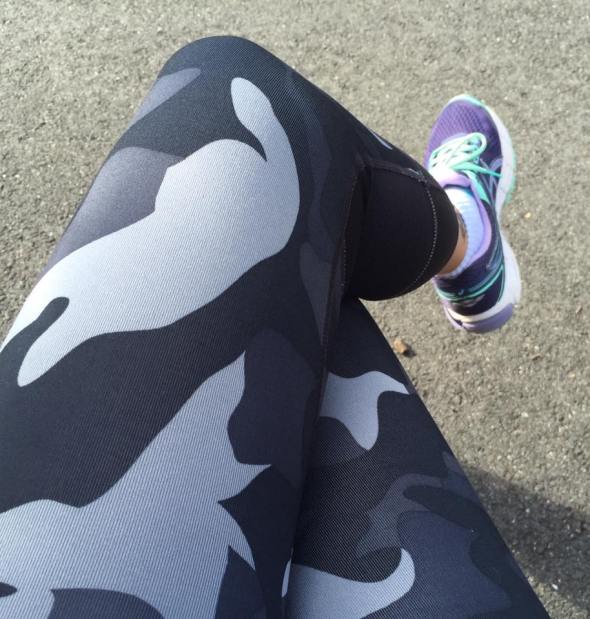 It’s been really satisfying the last few weeks to run. It’s been hot, almost unbearably humid some days, but I drink a lot of water, and then I go out there and I do it. I put on the music and I go. I breathe very consciously, especially on the exhale. I feel the discomfort of the weather, of the sun beating down on me, and the sweat building up and dripping down my arms, and the twangs in my knee and my left foot sometimes, and I keep moving. And I get to the point where it doesn’t feel so uncomfortable anymore, it feels good. I feel good. (My new camo pants don’t hurt.)
It’s been really satisfying the last few weeks to run. It’s been hot, almost unbearably humid some days, but I drink a lot of water, and then I go out there and I do it. I put on the music and I go. I breathe very consciously, especially on the exhale. I feel the discomfort of the weather, of the sun beating down on me, and the sweat building up and dripping down my arms, and the twangs in my knee and my left foot sometimes, and I keep moving. And I get to the point where it doesn’t feel so uncomfortable anymore, it feels good. I feel good. (My new camo pants don’t hurt.)
I’ve started to be able to do the first mile in about 9:15. From there my split times go up a bit, but they are usually still under 10, or less than 30 seconds above 10 minutes. It makes me happy.
I’m not trying to get faster; I don’t have a speed goal, and I don’t really have any interest in doing sprints or intervals. But I find it fascinating and gratifying that just by going out there and running, consistently, my body adjusts and I get faster, more efficient.
I feel this in yoga lately as well. Chair pose, which I loathe with a passion reserved only for a few things in this world, is not so horrible anymore. It’s even feeling a little empowering. Also, my quads are way less tight than they used to be — I can touch my heel to my rear end doing quad stretches, and it actually feels kind of awesome. These things, too, are just the result of putting in the time — going to class consistently, practicing.
I looked up increment in the dictionary, and my favorite definitions were these: “something gained or added”; “one of a series of regular additions.” They speak to the slow and steady process of putting in the work, and that if you do so, what you’re going to get is regular progress. A gain, an addition.
I’m trying to do the same in other parts of my life — like writing. Like figuring out what my next moves are. Like learning how to take more risks, ask more scary or difficult questions, not avoid doing or saying things because I’m afraid or unsure. If I just keep moving forward and trying — practicing — this incremental change is bound to happen.
It’s guaranteed. And it won’t come because it’s “meant to be,” or because I’m just sitting around passively waiting for it — I am putting in the time, and the thoughtful work, and the right intention.
Clear
Posted: August 11, 2016 Filed under: Uncategorized Leave a comment I just went to the eye doctor to get a new prescription for my contacts. I’d had the ones I was wearing forever, and I could tell I needed stronger ones for distance. What I didn’t realize was that stronger lenses for distance meant reading glasses for close-up work, because the close-up view wasn’t going to be so clear anymore.
I just went to the eye doctor to get a new prescription for my contacts. I’d had the ones I was wearing forever, and I could tell I needed stronger ones for distance. What I didn’t realize was that stronger lenses for distance meant reading glasses for close-up work, because the close-up view wasn’t going to be so clear anymore.
Like most of us, I do a ton of close-up work. I also read all the time. It’s been about two weeks and I am already completely sick of having to put the damn glasses on every time I want to look at a book, a menu, or my phone. And it’s not just that — it feels positively claustrophobic to me to have to have the glasses on over my contacts to see anything close up.
Chalk it up to getting older; I’m not the only person in her mid-40s who needs reading glasses. But I didn’t bet on how discombobulating this would be. I went to the doctor because my vision wasn’t so sharp; now I feel less clear than before.
This is all pretty interesting because, at the same time, I’m trying to figure out what my next phase should be. My daughters are almost 11 and 13; they are way more independent than they were even a year ago. I’ve been lucky to be able to work and be home with them for many years. But now I’m feeling like I need and want something else, something more. Some project or job or plan that’s just mine, that will inject some new energy into my days. Some new people, a new routine. Something that fires me up a little.
To that end, I met with a friend yesterday who’s becoming certified to be a life coach. I’d answered some questions for her before our meeting, and based on what I’d written, she said I seemed really clear on who I am and what I’m passionate about. Communication and connection are my two big things. I’m also feeling ready to do things that previously I’d have been afraid to do, or that I would have said I couldn’t do.
I think she’s right that I’m clear on who I am, and even on how I want to feel. The unclear part is exactly what that looks like in terms of what I want to do.
And just when I’m trying to get clarity on this, my vision literally feels obscured.
The good part is that I’ve been able to make one major life decision that I’m absolutely sure about: progressive lenses. I want and need to be able to see everything clearly, all the time.
That will be a start.
Refined
Posted: May 4, 2016 Filed under: Uncategorized Leave a comment I’ve started to focus on running again, and on going farther. I don’t have any particular goal or reason — no race I’m training for. I just remembered what it was like the last time I ran longer distances, how good it felt.
I’ve started to focus on running again, and on going farther. I don’t have any particular goal or reason — no race I’m training for. I just remembered what it was like the last time I ran longer distances, how good it felt.
I’m not too far into it yet — just up to five miles — but with running three times a week and doing yoga in between, as I’ve been for the past three weeks, I can feel a particular hum in my bones that I remember from the last time I was in this place.
It’s like I’ve changed my own vibration. Things feel heightened, and details are clearer. I feel more plugged in to myself, and to my emotions, which can be good or bad, depending on the emotion. I’ve found a deeper access point.
The combination of running and yoga is nothing less than delicious. There’s something in pounding the pavement one day, using your breath as a conduit to keep moving forward, and then lengthening everything out and breathing into that space the next.
Yoga has taught me to be more patient with myself and to trust the process, but running does that, too. I’m not very fast (my pace is consistently 10 and a half minutes; it might go down to 10 if I run frequently and far enough), but as I add a mile each week I can feel my body start to adjust. It starts to expect what’s coming and to prep for it. The breath comes more easily, and I don’t tire as fast. My gait changes slightly; it feels like a little less of an effort to keep moving forward. I get into a rhythm.
I start to create a “base layer” of miles. When I trained for a half marathon a few years ago, my base became six miles, which I could do in about an hour. As I built up mileage, getting to that six was like reaching the starting point, and I would add on from there. Right now I’m working on feeling more easeful at five miles, maybe being able to do it in 50 minutes, as opposed to 53 or so. Four miles feels like the current base. Once I hit 50 minutes at five miles, I’ll try to go six.
There’s a buzz about all this that I enjoy. Whether or not it actually is, my body feels more toned, more able and strong.
I feel like I’m becoming more refined. I’m refining my muscles and my breath, refining my will to keep moving, and my skill at being okay with wherever I am on any given day. (The word “refining” brings “re-finding” to mind.)
The physical refinements extend to the mental and emotional ones. I’m paying closer attention. This can feel amazingly good, but it can hurt, too. Lately, it feels like both at the same time — a kind of bittersweet joy, one that threatens to spill over at any moment, and sometimes does.
It makes me feel a bit insane, to be honest. But also very alive.
Words
Posted: April 28, 2016 Filed under: Uncategorized Leave a comment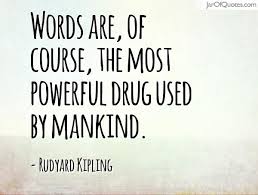
I woke up this morning and realized I’d made myself a little sad with what I wrote yesterday in Real. I think some clarification is in order, if only to ensure that I made the points I truly intended.
I certainly didn’t mean to say I think writing is an inherently fake and therefore useless endeavor. If I thought that, it would mean what I’ve been doing and loving all my life — reading and writing — is pointless. For me, there’s hardly anything more powerful than words. Maybe nothing is. And exchanging them through conversation in person, over the phone, though a screen, or on actual paper — all of those things, done intentionally, are real.
Words, pictures, sound, movement — writing, photography, film, art, music, dance — when done well and thoughtfully, they evoke feeling. That’s what makes them real. There’s nothing fake about creating something to communicate a feeling, or putting your emotions into something and sharing it. That’s what connecting is — sharing something that’s important to you and having others recognize it. And thinking about how you’re going to present it is part of that. It doesn’t mean you’re lying or being artificial about the original intent or feeling.
Words are important, and it’s important to choose the right ones, to be thoughtful about what you say and how you say it, to consider whether it really reflects what you mean. Online, it’s often easy to neglect to do that, or to have ulterior motives about the words you select and how you wield them. Perhaps that is where the problems begin.
It’s a real loss when words lose their heft and get tossed around like paper airplanes with sharp edges. I think that’s what I meant to say. We should never stop using them, and honing our skills at using them. In some ways, they’re all we’ve got.
Real
Posted: April 27, 2016 Filed under: Uncategorized Leave a comment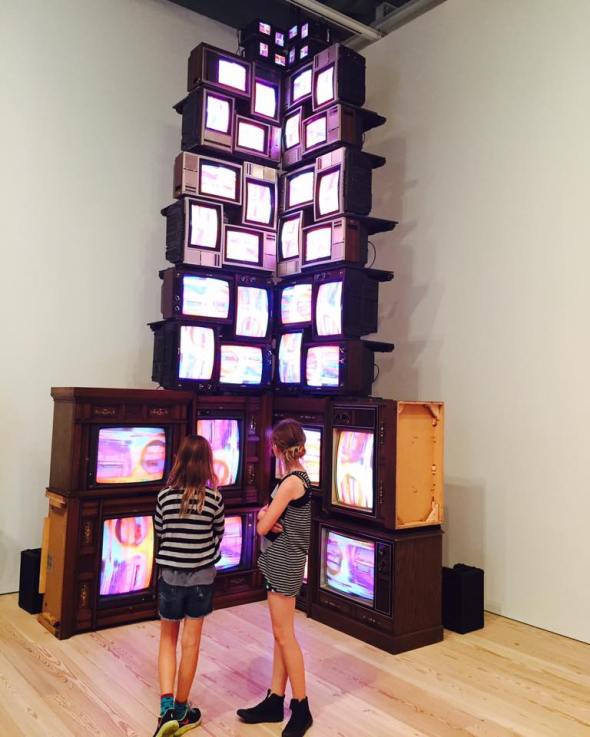 I’ve been lucky to be able to continue my career largely from home since I became a parent. What makes it possible is the Internet. (The Associated Press has decided to call it the “internet,” but I am not yet prepared to lowercase.) The fact that I can edit and write remotely, and communicate with supervisors and editors that way, and even send my invoices to accounts payable without ever leaving my computer is what makes it doable. It’s kind of incredible, especially considering the thing didn’t even exist when I was in college or a lowly editorial assistant.
I’ve been lucky to be able to continue my career largely from home since I became a parent. What makes it possible is the Internet. (The Associated Press has decided to call it the “internet,” but I am not yet prepared to lowercase.) The fact that I can edit and write remotely, and communicate with supervisors and editors that way, and even send my invoices to accounts payable without ever leaving my computer is what makes it doable. It’s kind of incredible, especially considering the thing didn’t even exist when I was in college or a lowly editorial assistant.
The flip side of all those benefits is that I can literally be by myself all day long and never interact with another human being. Sure, I can email, or like something on Facebook, or text, or retweet, but those aren’t real interactions. Are they?
I don’t at all mind being alone, or working alone, so it’s not a matter of me needing more social interaction. And I find it wonderful and satisfying that we can all get so much more done with so much less fuss with the Internet. I like the intimacy and immediacy of email when it’s used as a way to write a letter of sorts, and not just for information-sharing purposes. And there are even several people I’ve never met who are my “friends” online whom I consider real friends, who arguably know me better than they might if we were simply acquainted offline.
But social media can also be exhausting, and off-putting, and upsetting. It can be passive-aggressive. It can be plain old aggressive. It can be used for good, and I believe I mostly use it for good, and that most of the people I interact with do too. But it can also be used to be obnoxious and cranky and hateful, and to make other people feel bad (intentionally or not). And, of course, it can be a huge waste of time.
I’m observing that my feelings toward tweeting and posting and liking and favoriting (do we do that anymore?) and sharing and commenting are changing a bit. The shine, as they say, is off.
Maybe I am after a bit more of what’s real.
I was discussing this with a friend recently (via email). Even when you set out to be real, writing something down, fashioning your thoughts into sentences intended to communicate, yes, but also to evoke a certain reaction, is already an act. Posting something with the expectation that people will immediately read it and react to it already creates distance between you and what was real and true about what you wrote.
It’s different from sitting across a table from someone or next to them on a couch while you’re talking, being able to see their face and their eyes, their real-time reactions. It’s different from just saying what comes into your head when you’re with someone you feel comfortable and easy with — or even someone you hardly know but who is right there in front of you.
It may not surprise you to hear that I decided to look up real in my trusty dictionary. (Actually, I didn’t — what I did was go to m-w.com and type in “real.” I miss the days of paging through that worn red-covered book with its alphabetical tabs.)
Here are the three definitions:
- actually existing or happening; not imaginary
- not fake, false, or artificial
- important and deserving to be regarded or treated in a serious way
The first one seems obvious, but upon closer inspection, it raises more questions when you think about the Internet. What does actually existing or happening mean there? Does it mean people are noticing it, looking at it, watching it, listening to it? That’s legitimate — there’s something that people are interacting around. They are not imagining it. It’s there, even if virtually. It’s making them feel things: joy, excitement, sadness, envy, anger, outrage, disgust, inadequacy. Feelings are real, even if you can’t physically grasp them.
But aren’t they sometimes a little bit manufactured online? That brings us to the second definition. Something fake, false, or artificial isn’t real. The way we’re able to make our lives look and sound and seem just the way we want them to online is artifice. Of course, we can do that in real life, in person, as well. It’s just not quite as easy.
The third definition is my favorite by far, because it goes to what truly makes something real: value. The more we have to live with and in the unreality of being online, the more important and valuable things that are truly authentic become.
True connection is the most important thing I can think of. For real.
Perfect
Posted: April 19, 2016 Filed under: Uncategorized Leave a comment
I’ve been thinking about how hard people are on themselves. Noticing how focusing on things that went wrong or that weren’t their fault makes them unable to see or truly appreciate their accomplishments or their talents or their strengths. Watching people who are great at what they do get down on themselves, frustrated by outside forces that they couldn’t do anything about, blaming themselves for other people’s shortcomings and missteps. Seeing how destructive (and self-destructive) people’s behavior can become when they declare themselves a failure, not good enough.
We all do this. Some of us more than others. I know all about perfectionism — I’m sure I wasn’t the only mother of a newborn and toddler who thought she was an utter failure because she could not devote 100 percent of her attention to both of them at the same time. (Never mind any attention reserved for herself, or anyone or anything else.)
But even before I had kids, before I was an adult, I had a tendency to want everything to work out just so, and if it didn’t, I was extremely good at taking on all the blame, even if doing so didn’t make any sense.
It’s a lot about control — the space between what you think you can control and what you actually can, which, it turns out, isn’t much at all. The only thing we can control, supposedly, is our own reactions to things. And even that is incredibly difficult. Of course we all fail at controlling everything and everyone around us — it’s inevitable.
All that said, we still try, and it’s still frustrating (and sometimes soul-crushing).
I don’t mean to bring everything back to yoga. I really don’t. But it is what has helped me the most in working out how to get out of the perfectionism loop. The purpose and goal of yoga is singular — to cultivate your relationship with yourself. The root of the very word means “union” or “yoke,” and what you’re meant unite with, attach to, is yourself.
So often we’re in our heads, telling ourselves how we suck, how we messed that up, how everyone else is actively trying to find ways to thwart us. (This also helps me when I start to think other people’s behavior is all about me.) Yoga helps you connect to yourself in a different place — though your breath, spirit, and energy (referred to collectively as prana), and, yes, through your heart.
It turns out that the physical poses, as well as meditation (though you don’t necessarily have to do both), help you to access this place. And if you can figure out how to start knowing and taking care of yourself from there, it becomes possible to be easier on yourself instead of harder. It becomes easier to give yourself a break, and give yourself space, to get some perspective, and even to recognize your gifts and talents, what’s great about you and what you’ve accomplished.
It’s also possible to understand your limitations better, and, in turn, to accept them. Something like “I have a short torso, and that’s why it’s hard for me to grab onto my toes and straighten my leg” might sound like a silly thing, but once you realize it’s simply your anatomy that makes a certain pose challenging for you — it’s not a personal failing or that you “suck at yoga” — you might become more patient with yourself on the mat, less frustrated and judgmental. You might even notice what poses are easy for you because of some other random aspect of your form. I, for example, have hips that are very open laterally — to the sides — and that makes certain poses that are excruciating to others feel easy and even good to me. I don’t mind saying that I take pleasure in it, even though I realize it’s mere chance that I’m built like that. It reminds me to be gentler with myself when I’m navigating a pose that’s harder for me.
Do you need me to say it? All of this can be extrapolated into real life.
Of course, there are many ways to train yourself to be nicer to yourself. Yoga is the one that’s been most effective for me.
Maybe real perfection is when everything just falls into place and feels aligned. Maybe it’s not something we can work toward too directly but just a byproduct of being good to ourselves.
Or better to ourselves, at least.
Quiet
Posted: April 10, 2016 Filed under: Uncategorized Leave a comment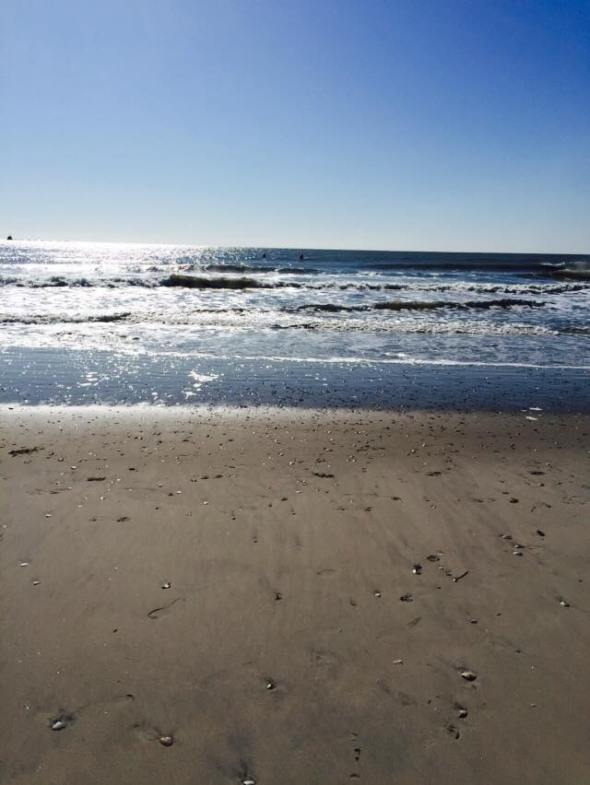 We’re down the shore in Ocean City for the girls’ spring break. We usually come here in August with all the other families carting beach umbrellas and sunscreen. I wasn’t thinking of this week as a beachy vacation (just a change of scenery and a chance to get some rooms in our house painted while most of us are not there), but it started snowing in big clumps on the drive down here yesterday, which was a little alarming. Spring does not know what it wants or who it is right now.
We’re down the shore in Ocean City for the girls’ spring break. We usually come here in August with all the other families carting beach umbrellas and sunscreen. I wasn’t thinking of this week as a beachy vacation (just a change of scenery and a chance to get some rooms in our house painted while most of us are not there), but it started snowing in big clumps on the drive down here yesterday, which was a little alarming. Spring does not know what it wants or who it is right now.
I was, however, looking forward to being here off season, when there must be half as many people in town as there are in the summer. And I was heartened to see the sun this morning and hear the snow melting in small rivers off the roof. St. James Beach, up at the top of our street and one of my favorite places on earth, looked just as lovely with ice frosting the sand earlier today as it does on a scorching hot morning.
Last night we went out for an icy stroll, and I walked down the middle of the empty street. Our feet crunched in the snow on the boardwalk. It felt strange to be wearing a coat, hat, and boots, not just in April, but here in OC, where we are usually in sunglasses and flip-flops. We got acquainted with two rabbits who had paused in an empty lot where a new beach house is going up.
Most of the family (husband, mother, sister, and niece, along with Kate’s best friend) is here until Tuesday, and then it will be just the girls and me for the rest of the week. I’m looking forward to running on the practically deserted boardwalk in the mornings.
I like empty places. A college campus in summer, restaurants between the lunch and dinner rush. Movie theaters when you’re the only one there. My car with just me in it. Last night, lying under a lot more covers than I usually do when we stay here, with Sara’s hand against my cheek (she had crawled into bed next to me and thrown her arm open in her sleep), I savored the pitch black of the room and the absolute silence.
My life is only as bustling as I choose — I work at home, editing, so most of my day can be as quiet as I want it to be. And I want it to be. It’s not that I don’t like sound and action, and I can talk you under the table if you let me. But there’s a recharge that happens in the quiet. The extra space helps me find myself amid all the chatter.
Embodied
Posted: April 7, 2016 Filed under: Uncategorized Leave a comment I was under the weather the past few days and didn’t really budge. I dragged my computer into my bed to work, and yesterday I even took a nap, which never happens. But though it was clear to me that I needed to rest and not do much in order to feel better, the lack of real movement was frustrating.
I was under the weather the past few days and didn’t really budge. I dragged my computer into my bed to work, and yesterday I even took a nap, which never happens. But though it was clear to me that I needed to rest and not do much in order to feel better, the lack of real movement was frustrating.
Yoga this morning helped me move back into my physical self again. And I really can’t wait to run tomorrow morning.
I’ve come to understand that there’s just about nothing more important than movement. As it turns out, your physical state it affects everything else, and quite thoroughly, too. Mental state, emotional state, how you perceive yourself, how you perceive everyone else, how you look at life. How you look at your life. In a pretty profound and astounding way.
I know, duh. We all know this. But as is the case with most important things, one day it hits you differently. You can hear about something, read about it, witness it or even do it, and you think you know it. But then one day it moves from your head to somewhere deeper, and you can’t believe you wandered through years thinking you appreciated the weight and significance of a thing, or a place, or an experience, or a person, when really, you had no idea. And then, when you do get it, it becomes vital and critical in a way you couldn’t have foreseen.
Moving through the various crises of life, I’ve realized that if I’m not in touch with my physical self, nothing else really works right. I’m not someone who’s ever had a real problem accessing her feelings, but accessing them though the physical feels easier, smoother, even softer.
There are some spiritual practices that teach the world is an illusion — a delusion — and that our bodies are gross (both meanings apply) vehicles we’re stuck with to get through this life. One of the things that drew me to the yoga studio where I practice is an embrace of the idea of being embodied. If you consider life as a gift, embodiment is the pinnacle of that gift. If you think of it that way, taking care of your physical self doesn’t seem like such a drag anymore. It’s more like an offering that you’d leave before an icon at a temple.
If that’s too highfalutin, the sensation of having moved is just so good. When I’m feeling hesitant to drag myself out of bed to go to yoga or kickboxing, or to run, I think about the fact that in an hour I will feel amazing: strong, connected, aware. More balanced and focused. More connected to myself. Because that’s what physical exertion and paying attention to your breath do. And who doesn’t want to experience those endorphins, that runner’s high?
Another huge benefit — being in the moment. When I’m moving my body, and especially if it’s a challenge, I can’t help but be right there. Even on the worst day, I can manage to be present. Running does this in an especially powerful way for me (you can read about that here).
I am grateful that the way my life is set up, I’m able to focus on physical things in the mornings (but not too early) and then do my errands, work, and other things later in the day. I schedule it in like any other appointment, because I know it’s crucial to helping me stay on track and feel — there’s really not a better word — whole.
Bright
Posted: April 6, 2016 Filed under: Uncategorized Leave a comment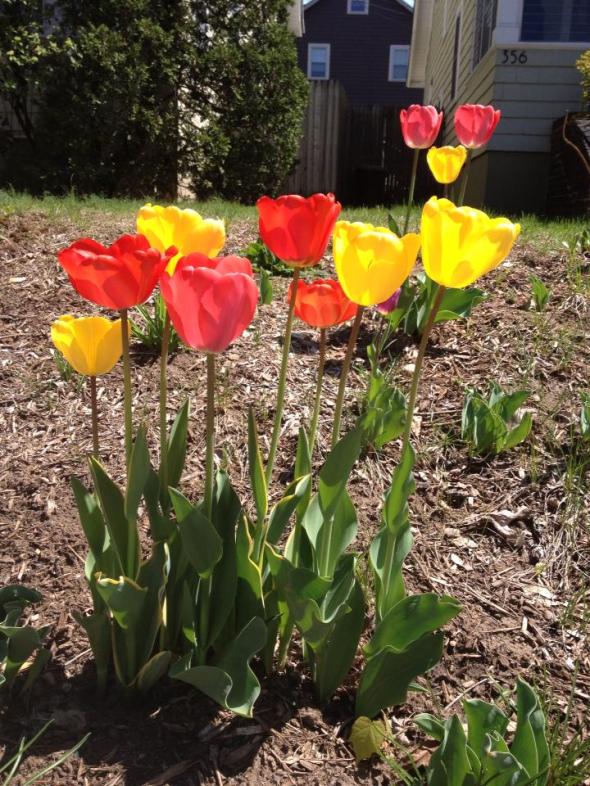 I am not a huge fan of clothes shopping. When I set out, I usually have a very clear idea of what I want — so clear that what’s in my head doesn’t exist on any rack anywhere. When I do happen to find things I like (or facsimiles, at least), they tend to be black, gray, navy, purple (eggplant), blue (cobalt), or green (army/olive/moss). That’s pretty much it.
I am not a huge fan of clothes shopping. When I set out, I usually have a very clear idea of what I want — so clear that what’s in my head doesn’t exist on any rack anywhere. When I do happen to find things I like (or facsimiles, at least), they tend to be black, gray, navy, purple (eggplant), blue (cobalt), or green (army/olive/moss). That’s pretty much it.
It’s not that I don’t like bright colors. I just feel weird in them. I bought an aqua blue fleece jacket that I sometimes wear over workout clothes (mostly black and gray), and it’s fine, and warm, but I feel — I don’t know — exposed. On display. Even so, I once ran into my neighbor on the street while I was wearing it, and she didn’t recognize me.
I can handle hints of color; I have a tennis-ball-colored tank top that I wear under other things. Sometimes I’ll buy brightly colored or even patterned (!) underclothes, or choose a jaunty hue for my pedicure. I do have a purple T-shirt with an orange Om design on it. But mostly, I keep things muted and dark.
I bought a few tops recently (black, gray, two olive green) and had a conversation with the salesladies about my penchant for avoiding color. “It’s spring! You need something bright!” they said, suggesting a shirt in deep coral. I could see how it might look good on me. But I know I would never wear coral.
I just wouldn’t.
Still, I keep trying to mix it up. On the recommendation of a friend, I signed up for a monthly service that sends you five pieces a month, based on a style and fit survey you take online. You try it all on, keep what you want, and send the rest back. If you choose not to buy anything, all you pay is a $20 “styling” fee.It’s sort of like having a personal shopper though the mail. (Which also means no trip to the mall, so that’s a plus.)
It also seemed like it could be fun. I decided to look at it like reading a book you’d never pick up but that someone you like suggests: It might be amazing, and you never would have known about it otherwise.
The first shipment arrived. I was mildly excited about what I might find in it. I had fantasies of sweet jewel-toned tops that had some interesting fabric treatment and would fit me perfectly.
There was a black-and-white-striped dress that was kind of cute, and it did not look bad on me — but even in the neutral shades, it still seemed too “loud.” A gray tunic-type top was more in my wheelhouse, except for the drapey pink-floral fabric peeking out below the hem (silky fabric, no, pink, no, floral pattern, no) — I didn’t even try that on. There was a blue anorak that just wasn’t something I’d ever wear — the color was fine, but it was too bulky. Some mint-green flats with little black bows. Cute, but so not me.
The only thing I decided to keep was a pair of jeans that not only fit nicely but were marked a size smaller than I’m used to. (It’s always nice to trick yourself into thinking you’re smaller than you are.) It was the first time I’d ever bought jeans through the mail, which seems like a triumph, given what jeans shopping is usually like.
But really, the only thing I could find to keep was — jeans? Am I so picky and set in my ways?
And if that’s the case — is that so wrong?
I’m still not sure. (At any rate, I decided to give the service another try. We’ll see what arrives next month.)
Clothes carry a strange weight. Finding things you like the looks of, trying them on, and choosing to wear them or not are decisions heavy with psychological undertone. It’s outwardly about how you want to present yourself to the world, but inwardly it’s about your thoughts, hopes, and fears about what you look like, and all the insecurity that comes with that.
You want to look good, but you also want to feel good. My days of buying and wearing things that aren’t comfortable just because I think they look good (or worse, because someone else thinks they do) are over. I’m experienced enough to know that if I feel uncomfortable in something, it will decidedly not look good.
See, the entire thing is exhausting. And I’m no nearer to understanding why I shy away from bright colors. Am I hiding behind muted tones? Or do I just not want (or need) to call attention to myself? Is there some deep-seated emotional reason? Even if there is, do I really need to examine it?
Maybe not. I’m certainly not the only one with this preference. Dark colors just look good on people. On me, for sure. Those greens I like make my eyes look amazing. I know that.
Still. After the conversation about the coral top, I went back to another store I’d browsed in earlier and bought a something in a blue brighter than I’d usually choose. I’d say it’s somewhere between cobalt and aqua. Vivid is a word you could use for it. It makes my hair look redder and my green-blue eyes look bluer.
I never said I was completely closed-minded. I’ll give it a try.
Ransacked
Posted: March 31, 2016 Filed under: Uncategorized Leave a comment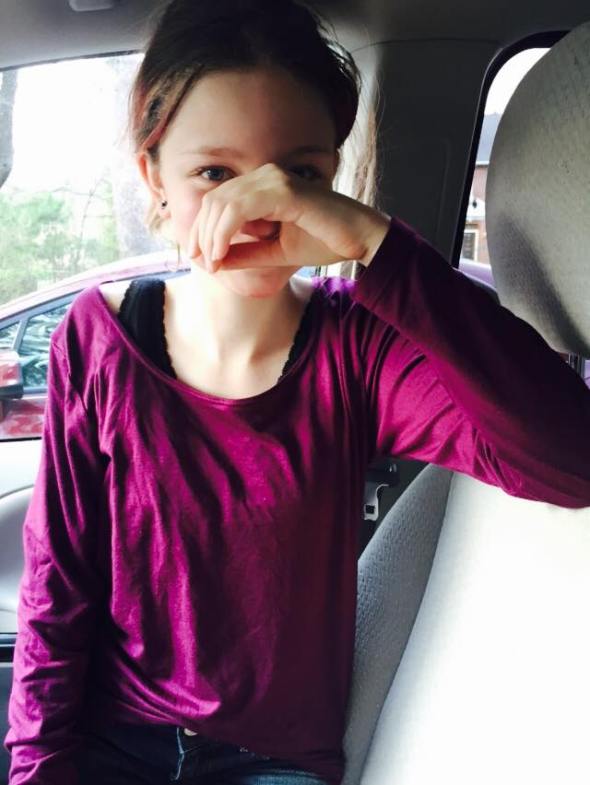
Every morning now, my older daughter, Kate, comes downstairs wearing my clothes.
My shirts and sweaters, that is. She wears a size 0 in pants, so we’re not exactly sharing those. But each morning she’s sporting something from my closet.
It all looks great on her — better than it does on me. And I suppose I should be glad she likes my taste enough to borrow my stuff. The other day she wore my 1985 Cure T-shirt to school, which made me proud. (My work here is done, etc.)
She’s not the neatest person in the world, and I’ve lately discovered piles of stuff on the floor of my closet, the result of her explorations. Robes. Dresses that have slipped off hangers. A pair of pants I never wore with the tags still on.
While I feel a bit ransacked, there’s some pleasure in it, too. Despite myself, I kind of like the careless way she pushes in there and takes what she wants, confident that I’ll be okay with it. She knows I’ll roll my eyes but then smile and give her a hug. “I wouldn’t take the stuff you really like and wear a lot, Mom,” she says. My big girl. Who’s growing up.
There are different ways of feeling ransacked, though. Yesterday was tough on me emotionally for a variety of reasons, and by the end of the afternoon I felt like I’d been hit by a truck. This happens to me sometimes — feelings I’d been keeping in check or trying to deal with in either an avoidant or strung-out way get the best of me. I feel defeated. In those moments, I’m harder on myself than I should be. I’m aware that I’m doing it, but I continue to pour salt into my own wounds. I see everything through a fish-eye lens of frustration and grief. I just want night to arrive so I can sleep and escape this unfortunate day.
It’s strange how emotions can make you feel as beat up as if you’d been in a physical fight.
I went to yoga this morning, which helped — I woke up still feeling a little off and tender, and now I’m more grounded. I also straightened up around my house; throwing stuff away and freeing up space always gets me feeling more on top of things.
And I’m fortunate to work at home, where I can make space for my emotions if I want and need to.
My teacher Emma pointed out in class today that the word emotion includes the word motion. Feelings are meant to move and evolve. I know this. Despite the trapped and miserable place I found myself yesterday, I was aware that it wasn’t permanent. Emotions do move in and out of us. It’s nice when a good or a great one arrives; you want it to stay. But when those bad ones show up, it’s all you can do just to stay upright.
Being ransacked isn’t fun, but I suppose getting shaken up can help you see things from a different perspective. (Or not. I’m being too optimistic. It just sucks.)
For the rest of the day, I intend to let my emotions move where they need to move. And just let myself be.